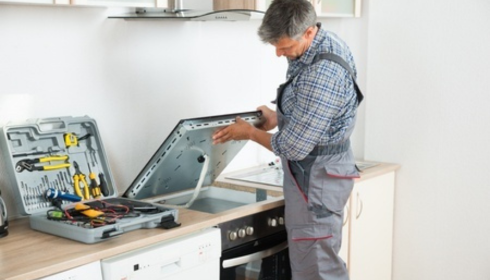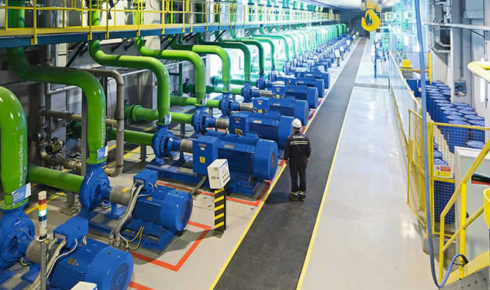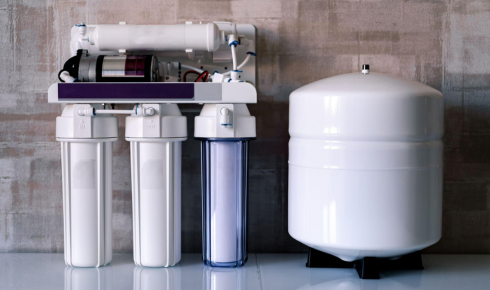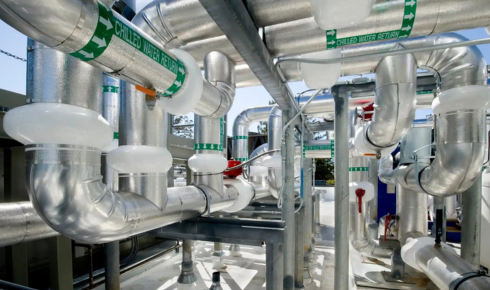There’s something oddly comforting about the steady hum of an oven warming up, or the sharp little beep when it’s reached just the right temperature. For a lot of people, that sound is the start of dinner, baking day, or even a busy shift in a restaurant kitchen. So when the oven suddenly refuses to heat, shuts off mid-meal, or gives off that scary burning smell, panic kicks in fast. Nobody really plans for oven breakdowns—they just show up uninvited, usually at the worst possible time.
Why Ovens Fail (and Why It’s Not Always Your Fault)
Ovens are like any other piece of equipment: reliable until they’re not. Heating elements wear down, thermostats lose accuracy, or digital controls decide they’ve had enough. Sometimes it’s just years of wear, other times it’s a power surge or even something simple like a clogged vent.
The important part is not beating yourself up. Even if you’re careful, clean regularly, and follow every safety tip in the manual, appliances live on borrowed time. It’s less about “if” and more about “when.” And when it happens, the question becomes: Do you grab a screwdriver and YouTube video, or do you call in an oven repair service that knows exactly where to look?
The DIY Temptation (and Why It’s a Gamble)
Let’s be real—Google and YouTube make everything look easy. Type in “oven not heating,” and you’ll find dozens of videos promising fixes in under ten minutes. Swap out a coil, tighten a wire, reset a breaker—done, right?
Well, not always. Ovens are full of electrical components, and if you’re not careful, you can turn a small issue into a larger one, or worse, shock yourself. Plus, some parts aren’t as universal as they seem. That replacement element you ordered online may not be the right fit for your model, and by the time you’ve forced it in, you might have caused damage that costs twice as much to undo.
DIY isn’t always wrong, but it’s a gamble. If you’re comfortable tinkering with electronics, maybe give it a try for minor issues. But for most people, paying a professional saves time, stress, and in the long run, money.
Why Professionals Are Worth It
Hiring someone to fix an oven isn’t just about convenience—it’s about expertise. Technicians don’t just show up with a toolbox; they come with experience diagnosing dozens of different makes and models. They can tell the difference between a thermostat issue and a failing control board just by running a few tests.
More importantly, they carry the right parts, and if not, they know where to get them quickly. That’s a huge advantage when you’re dealing with a broken oven right before hosting dinner for family or a big catering job.
And then there’s the warranty factor. Professional repairs often come with some kind of guarantee. If the same part fails a week later, you’re not stuck footing the bill again.
The High Stakes in Commercial Kitchens
Now, it’s one thing when your home oven quits in the middle of a lasagna. It’s a whole different story when an oven goes down in a restaurant, bakery, or school cafeteria. A broken commercial oven doesn’t just delay dinner—it halts operations, sends customers away, and hurts revenue.
That’s why speed and reliability matter so much in professional settings. In places like South Carolina, businesses depend on fast, local technicians who specialize in commercial oven repair Columbia SC because every hour of downtime is costly. Commercial ovens are also more complex, often designed for heavy, continuous use, so they need someone who knows the ins and outs of industrial-grade equipment.
It’s not just about getting the oven back on; it’s about keeping an entire kitchen—and everyone who relies on it—running smoothly.
The Money Question: What’s This Going to Cost?
Ah yes, the question nobody loves but everybody asks: how much? The truth is, oven repair pricing is like ordering at a diner. There’s a “menu” of common fixes—element replacement, door seal swap, thermostat calibration—but the bill can change depending on the complexity and your location.
On average, smaller fixes can be fairly reasonable, sometimes less than a nice dinner out. Bigger problems—like control board replacements—can feel steeper but are usually still cheaper than buying a new oven.
That said, it helps to get a sense of your oven range service cost before committing. Many companies will give you an upfront estimate, or at least a ballpark figure, after a quick diagnostic. And here’s a tip: always ask if the diagnostic fee goes toward the repair cost if you move forward. Some do, some don’t, and it can make a difference.
Repair vs. Replace: The Kitchen Showdown
There’s a point where you’ve got to weigh the math. If your oven is more than 15 years old and the repair estimate creeps into the hundreds, replacing it may be smarter in the long run. Modern ovens are often more energy-efficient, and the money saved on power bills can add up.
But if your oven is relatively new and the repair is a one-off fix, it makes sense to repair it and get a few more years out of it. Think of it like a car: you wouldn’t trade in your vehicle for a new one just because the battery died, right?
How to Stretch the Life of Your Oven
Once you’ve invested in a repair—or a new appliance—you want it to last. A few small habits go a long way:
- Clean spills as they happen instead of letting them bake on.
- Avoid slamming the oven door; hinges wear out faster that way.
- Don’t overload the oven with heavy dishes.
- Schedule a professional check-up every couple of years if it’s a high-end or commercial model.
Like most appliances, ovens appreciate a little TLC. Treat them right, and they’ll reward you with years of dependable cooking.
Wrapping It All Up
At the end of the day, an oven is more than just a box that gets hot. It’s the heart of a kitchen, whether at home or in a bustling restaurant. When it stops working, life gets complicated fast. The good news is that most problems are fixable, and you don’t have to go it alone.
Calling in professionals may cost a little upfront, but it saves headaches, prevents bigger damage, and keeps dinner—or service—on track. Whether you’re dealing with a simple thermostat issue at home or a full-blown shutdown in a commercial kitchen, the right help makes all the difference.
So next time your oven acts up, don’t panic. Take a breath, get the facts, and make the call that keeps your kitchen running. Because at the end of the day, it’s not just about fixing an oven—it’s about keeping the rhythm of life, meals, and moments alive.




